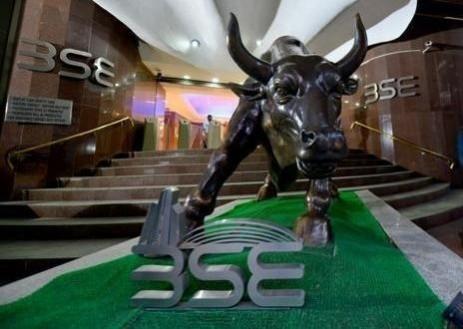
The Indian stock markets bounced back on Tuesday after four straight sessions of losses, supported by positive global cues, easing retail inflation and steady foreign fund inflows.
Both benchmark indices ended the day with strong gains. At the closing bell, the Sensex rose by 317 points, or 0.39 per cent, to settle at 82,570.91.
Following suit, the Nifty ended 113.5 points higher at 25,195.8 -- marking a gain of 0.45 per cent for the day.
Market sentiment is showing signs of improvement, supported by a blend of global and domestic developments, said analysts.
"Domestic inflation has fallen to multi-year lows, strengthening expectations of a further rate cut by the RBI -- potentially accelerating future economic growth, which is currently showing signs of improvement," said Vinod Nair of Geojit Investments Limited.
Broader markets also participated in the rally. Both the Nifty MidCap and Nifty SmallCap indices rose around 0.95 per cent -- indicating strong buying interest beyond the large-cap space.
All sectoral indices on the 50-share index closed in the green. The Nifty Auto index led the gains with a 1.5 per cent rise, while the Nifty Pharma and Healthcare indices also performed well, climbing over 1 per cent each.
Other sectors such as bank, energy, financial services, IT, metal, PSU Bank, realty, consumer durables and oil & gas also ended the day with gains of up to 1 per cent.
The market mood was further lifted as the India VIX, often called the fear index, dropped by 4.17 per cent to settle at 11.48.

Analysts said the overall sentiment remained positive due to easing inflation data and consistent buying by foreign institutional investors, which helped markets recover lost ground.
Meanwhile, the Indian Rupee regained ground against the US Dollar, reversing a recent two-day decline.
Experts said that this appreciation largely reflects renewed investor confidence in domestic equity markets and a softening of the US Dollar Index.
"Market participants are keenly awaiting the release of pivotal US inflation data later today, as it's expected to heavily influence future monetary policy decisions and deliberations over Federal Reserve leadership, especially amidst prevailing trade uncertainties," Dilip Parmar of HDFC Securities stated.
(With inputs from IANS)

















